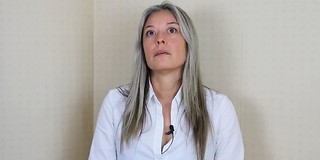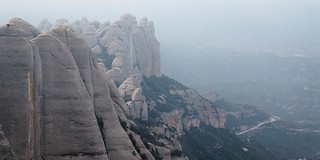Nicaragua: a new communist persecution to Christians and two scandalous silences
Since the first communist dictatorship, in the USSR, this totalitarian movement has been characterized by its absolute contempt for religious freedom.
In several countries on different continents, communism has exhibited a fanatical hatred against believers in general and against Christians in particular. In Spain we can attest to this, since in the 1930s, communists, socialists and anarchists carried out one of the bloodiest anti-Catholic persecutions of the Contemporary Age.
History repeats itself in Nicaragua
Currently, there are several communist dictatorships that keep this persecution against Christians alive. One of them is Nicaragua, where Daniel Ortega has been in power since 2007, de facto acting as a full-fledged dictator. For several years, his communist regime has developed a persecution against Catholics that has resulted in aggressions against priests, bishops, religious, seminarians and laity, including expulsions from the country, as well as desecration of sacred places and objects, siege, blockade, destruction and burning of churches, and also the outlawing of more than a hundred Catholic entities -including those dedicated to helping the poorest, such as Missionaries of Charity- and the closure of radio stations and television channels linked to the Church, as recently denounced by Aid to the Church in Need.
The most recent episode of this persecution has been the harassment and arrest of Monsignor Rolando José Álvarez, bishop of Matagalpa, under house arrest since August 4, when the police of the Ortega dictatorship prevented him from going to the Cathedral to officiate at Mass. It should be noted that this is not the first time this has happened in Nicaragua. The local brand of communism, the so-called Sandinismo, already persecuted Christians in the 1980s, and in 2003 Ortega apologized for it when he was in the opposition. Once he returned to power, the communist leader has recovered the anti-Catholic campaign from him.
A predictable silence
The seriousness of the anti-Christian persecution of the Ortega communist dictatorship is such that even international organizations such as the UN, the European Union and the OAS have condemned these attacks on religious freedom.
However, the repression against Christians in Nicaragua has in its favor two scandalous silences. One of them, very predictable, is that of the political and media left. This silence is not surprising because, after all, the left -from the so-called social democracy to the extreme left- has always shown great complicity with the totalitarian left. Ortega's party, the Sandinista National Liberation Front, is a member of the São Paulo Forum, which brings together the leftist regimes of Latin America and which in Spain receives the support of Podemos, a government partner of the socialist Peter Sanchez. Perhaps for this reason, the president of the Spanish government has not said a word against this anti-Christian repression in Nicaragua.
An inexplicable and strange silence
The second of these silences is the most inexplicable and strange of all, because this silence has as its protagonist the highest leader of the Catholic Church, a pontiff who, moreover, is known worldwide for his loquacity. Pope Francis has not issued a word of condemnation against this persecution or of encouragement to the persecuted in two years, at least in the face of the public, which is how he usually makes all kinds of messages. This Wednesday, 61 Nicaraguan opposition organizations asked the Pope to intercede for the Bishop of Matagalpa. Francis' silence on the situation in Nicaragua has caught the attention of media from several countries, even from a government media in secular France, which a few days ago commented in surprise the "mutism of Pope Francis" in the face of the persecution against Catholics in Nicaragua.
The last time Francis intervened in the situation in Nicaragua was in 2019, to order Bishop Silvio Báez, who is highly critical of Ortega, to leave the country and go to Rome, a decision that caused great controversy among Catholics in Nicaragua, who considered that as a surrender to the dictatorship. Monsignor Báez has lived since then in exile in Rome. In November Francisco confirmed him in his position , but remains exiled. The last time the Pope spoke about Nicaragua was at the Angelus on August 5, 2020, after a terrorist attack against the Cathedral of Managua that the Ortega regime has wanted to cover up qualifying as something "accidental". Francis was very brief: "I am close to you and I pray for you." A closeness that many Nicaraguan Catholics do not perceive, of course, in the scandalous silence of the Pope on the persecution that they are suffering.
---
Main photo: Vatican News. The arrest of Monsignor Rolando José Álvarez, bishop of Matagalpa.
|
Don't miss the news and content that interest you. Receive the free daily newsletter in your email: Click here to subscribe |
- Most read
- The ten oldest national flags in the world that are still in use today
- United States' last Hueys: Vietnam-era veterans still flying in the US Air Force
- A former secret submarine base in Estonia and its important role in the Cold War
- The newspaper El Mundo calls a member of an active terrorist group a 'Palestinian militant'
- Lenin: numbers, data and images of the crimes of the first communist dictator
- The distinctive garments of the regulars of the Spanish Army explained by two soldiers
- Argentina buys 24 F-16s and we can now see how they will be armed and decorated

 ES
ES





Opina sobre esta entrada: